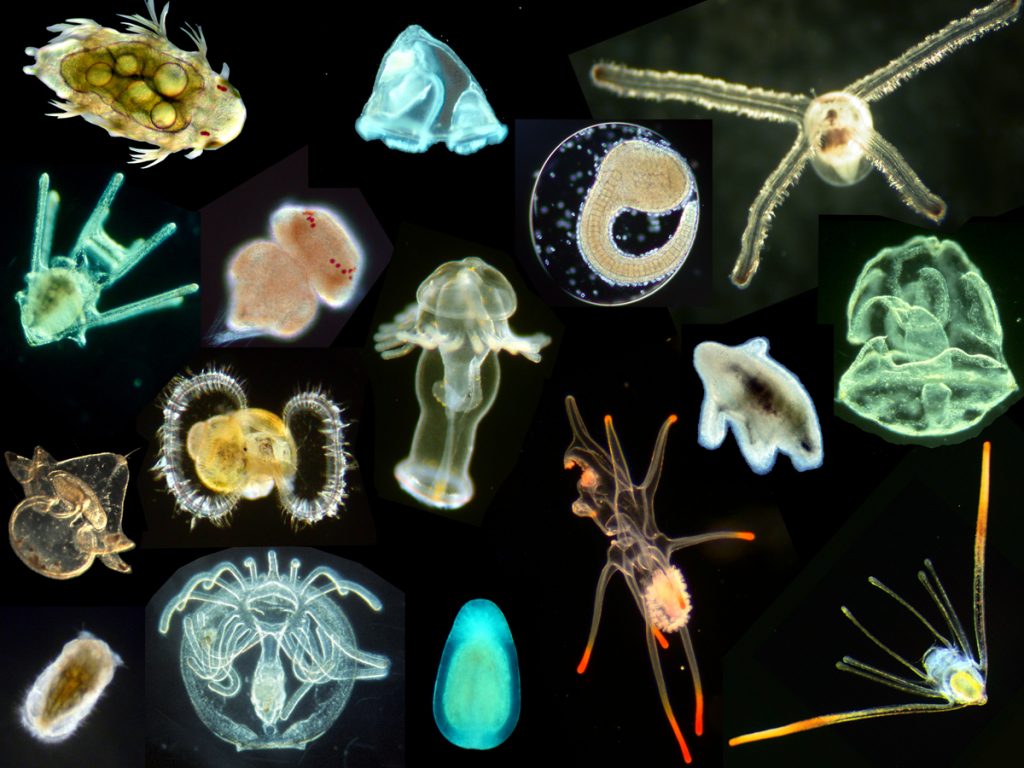FHL 548 | Summer A 2023
Larval Biology 2023
The course emphasis will be on invertebrate larvae and their interactions with the environment. Topics for lectures will include functional requirements and constraints for embryos, larvae, and juveniles; larval feeding and swimming; larval dispersal, mortality, settlement, and recruitment; effects of environmental factors and stressors (food, encapsulation, temperature, salinity, ocean acidification, oxygen levels) on performance of larvae and juveniles; parental investment per ovum, and historical patterns and evolutionary transitions between modes of development.
Richard Emlet brings special expertise with functional morphology of larvae, developmental diversity and evolutionary transitions between modes of development, and performance measurements of newly metamorphosed juveniles. Danny Grünbaum brings special expertise of biomechanics, and modeling of the effects of currents, turbulence, and behavior of larvae on larval distributions. Karen Chan brings special expertise in studying larval interactions with the changing environment and interests in how the larval experiences impact population dynamics.
A course plan will include two short research projects by groups of two or more students (voluntary associations) with a short, written paper from each project which instructors’ review for return of a revised copy. Students have the option of continuing their first project. A stimulus and guide to the students is a list of new questions and approaches to answering them (from the instructors) that indicates original research that might be feasible within the constraints of time, environments, biota, and available equipment. Students commonly modify these suggested projects and sometimes suggest a completely different project that is interesting, feasible, and within the course topics. The objective is development of questions and skills, not publication, but projects in this course have led to numerous published papers and several dissertations in the past.
One or two lectures each day and discussions of published research papers will provide background on this field of research. The course will also include demonstration of culture methods, techniques for handling and manipulating tiny organisms, and photo-microscopy, especially in the first week. Computer modeling labs will cover models of embryo swimming, larval cloning, spatial mechanisms for maintaining diversity, quantifying/predicting large-scale patterns of larval transport, and ocean technology tools for environmental/ biological sensing and laboratory experiments.
Instructors for this course are:
- Richard Emlet, Oregon Institute of Marine Biology
- Danny Grunbaum, School of Oceanography, University of Washington
- Karen Chan, Swarthmore Biology Department
Enrollment is limited to 15 students. No textbook is required for this course.
Note: Student transcripts from University of Washington will list “FHL 548: Advanced Topics in Evolution and Development”
